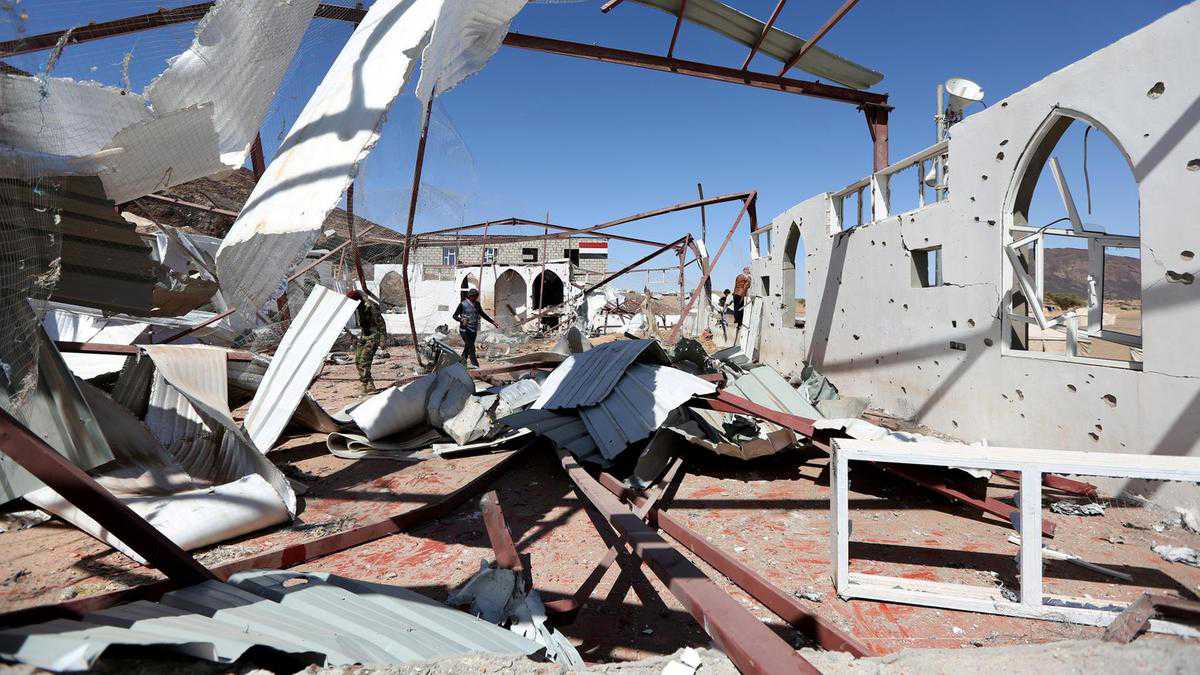Yemen government warns of 'bloody' year if violence escalates
30 January, 2020

Yemen is set for a “bloody year”, government officials warned on Wednesday after an upsurge of violence in the country’s north that has shattered relative calm and displaced thousands.
Fighting between Iran-backed Houthi rebels and forces loyal to the government erupted on January 19 after months of relative calm since the signing of an agreement in December 2018 meant to pave the way to wider peace talks.
The United Nations on Tuesday held an emergency session to discuss the violence at the request of the United Kingdom.
The UN special envoy to Yemen, Martin Griffiths, urged a halt to the “alarming military escalation” in fighting during the Security Council’s emergency session on Tuesday night.
The rebels launched a major push to recapture the country’s northern Al Jawf province and Marib governorate as well as Nehm, a half-hour drive from the rebel-held capital, Sanaa.
“It is clear that the start of 2020 was launched with bloody and tragic events in Yemen that are expected to continue for some time if the international community does not intervene against the Iranian-backed militia,” Yemen's Deputy Human Rights Minister Majed Fadhil told The National.
“It will be a year of war and destruction against the people of Yemen,” Mr Fadhil said.
At the start of the month, two missiles hit a Yemeni-government training base in Marib, killing more than 130 soldiers. The government blamed the Houthis for the attack although the group has not claimed responsibility.
The events in Nehm and Marib is a direct indication that “the rebels have no incentive towards building peace,” the minister said.
The spokesman for the UN Secretary General, Stephane Dujarric, said Mr Griffiths “warned that recent developments jeopardize the progress the parties had made on de-escalation and confidence-building.”
Diplomats said council members expressed serious concern at the upsurge in fighting and were working on a statement.
The spike in violence threatens to complicate the UN’s efforts to get both sides back to the negotiating table.
Stockholm agreement- where are we?
Mr Griffiths helped broker a historic peace deal between Yemen's warring sides in Sweden in December 2018.
It was seen as the first step towards a wider negotiated settlement to the conflict. It averted the government offensive to capture the Red Sea city of Hodeidah by agreeing to a cessation of hostilities for the area and a withdrawal of all forces.
But little progress has been made, in part due to a lack of trust between the two sides and arguments over the exact terms that the parties agreed to.
The deal gave the Houthis the “feeling that Hodiedah’s front is secured by a ceasefire, this emboldened them to mobilize their fighters to attack government forces in Nehm,” Marwan Ali Noman, Yemen's deputy permanent representative to the UN told The National.
“We've had more than 75 agreements with the Houthis and experienced them to use these agreements as tactics to buy time and deceive the international community,” he added.
The Houthis have proven to all Yemenis that they believe in “a divine right to rule and that they're ready to break agreements rather than make them,” said a Yemeni source close to the government on condition of anonymity.
The source said that there are members in the Yemeni government who now see the Stockholm deal as a mistake and this will undermine efforts to bring sides back to the table in the future.
“Many believe that if the international community didn’t pressure government forces to not enter Hodeidah in late 2018, we would have been talking about a real peace process today,” he said.
At the end of 2019, the apparent stalemate on the ground led to hope of wider talks, said Elana DeLozier, a research fellow who focuses on the Gulf at the Washington Institute for Near East Policy.
“They were not moving towards peace per se, but they weren’t getting worse, so it really was a true stalemate,” Ms DeLozier said. “Some Yemen watchers were relieved, even though the worry is: if you’re not moving towards peace, what are you moving towards?”
The only outcome of the Stockholm agreement was that it was a deterrent to a military assault on Hodeidah, Afrah Nasser, Yemen researcher at Human Rights Watch told The National.
“Today it is irrelevant because it does not address the other front lines and the many human rights abuses and suffering of civilians,” Ms Nasser said.
For peace to prevail in Yemen, justice must be implemented in any peace deal, otherwise, the cycle of violence in will continue, she said.
“Without ensuring that justice or a political deal that includes justice measures and accountability measure we will continue in this cycle,” Ms Nasser said.
Source: www.thenational.ae
TAG(s):
